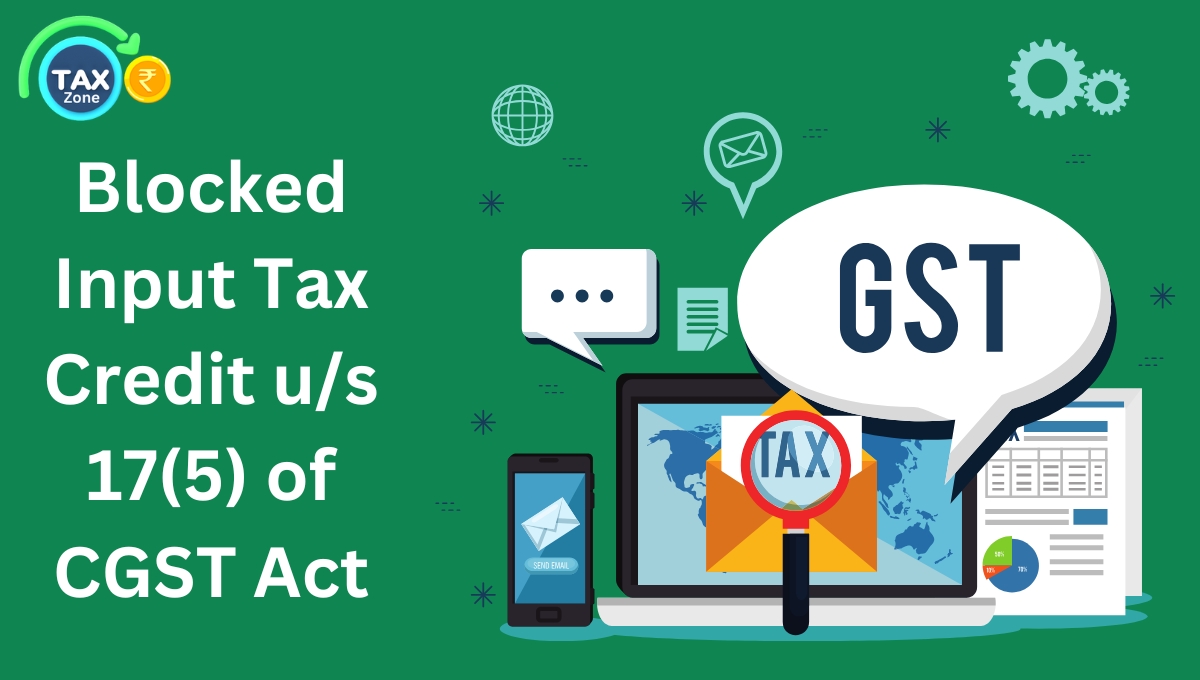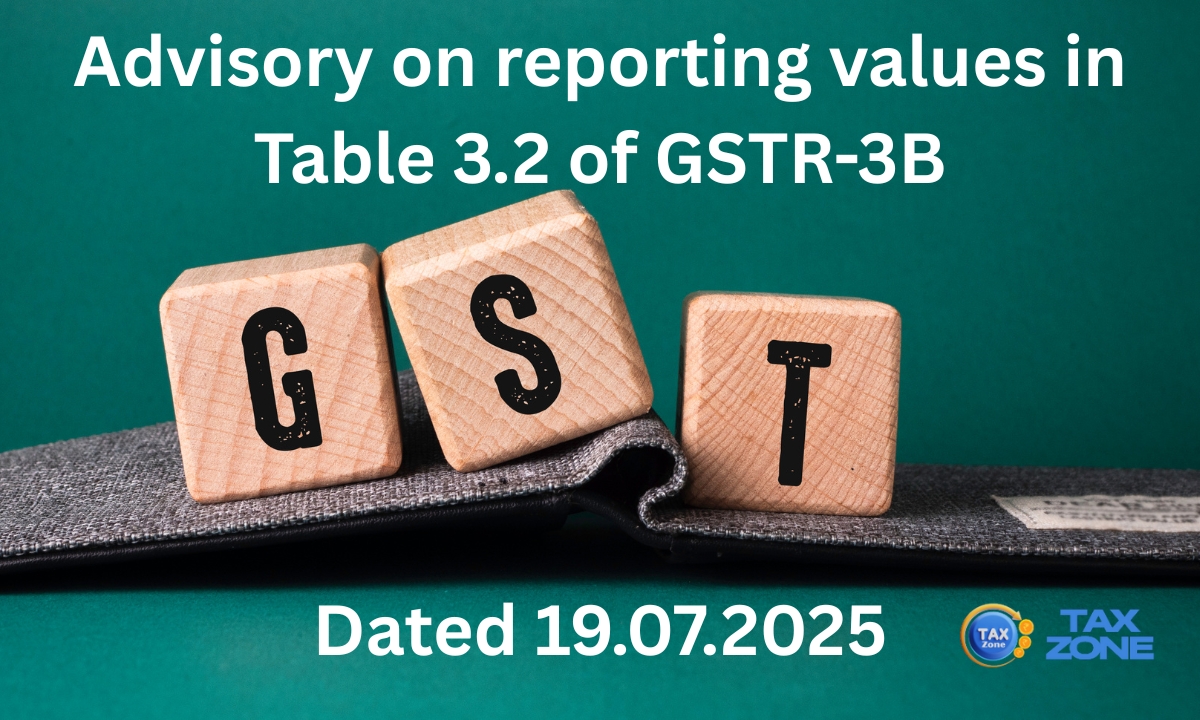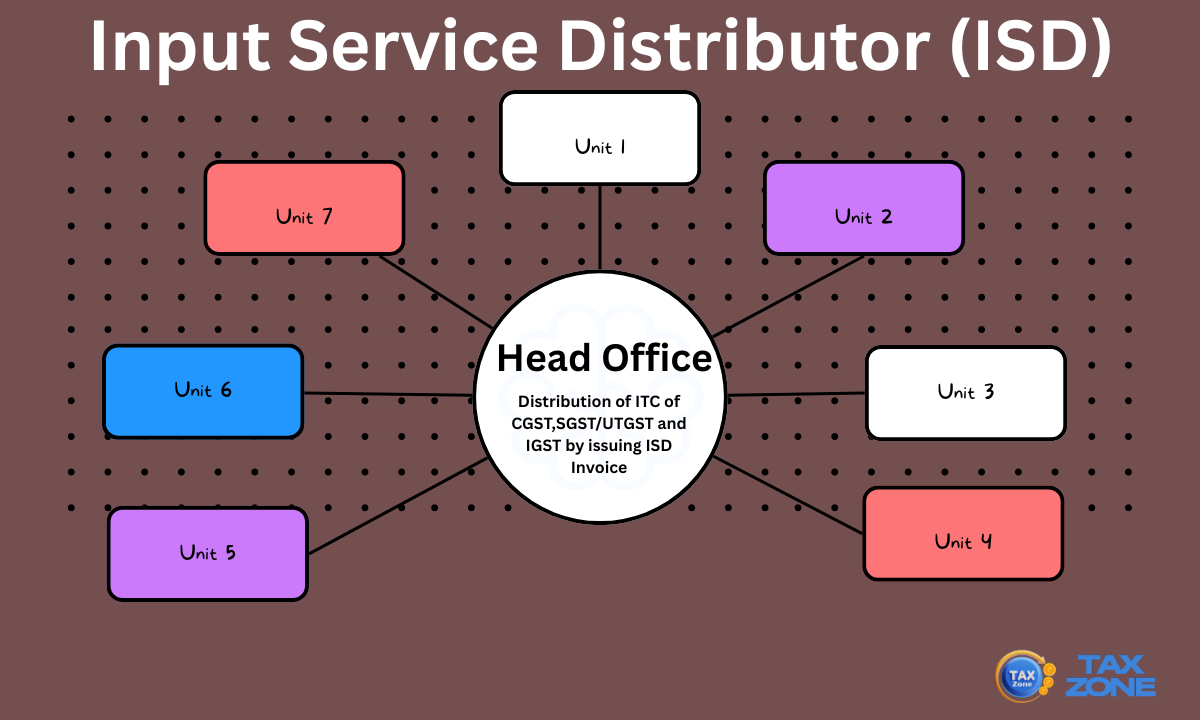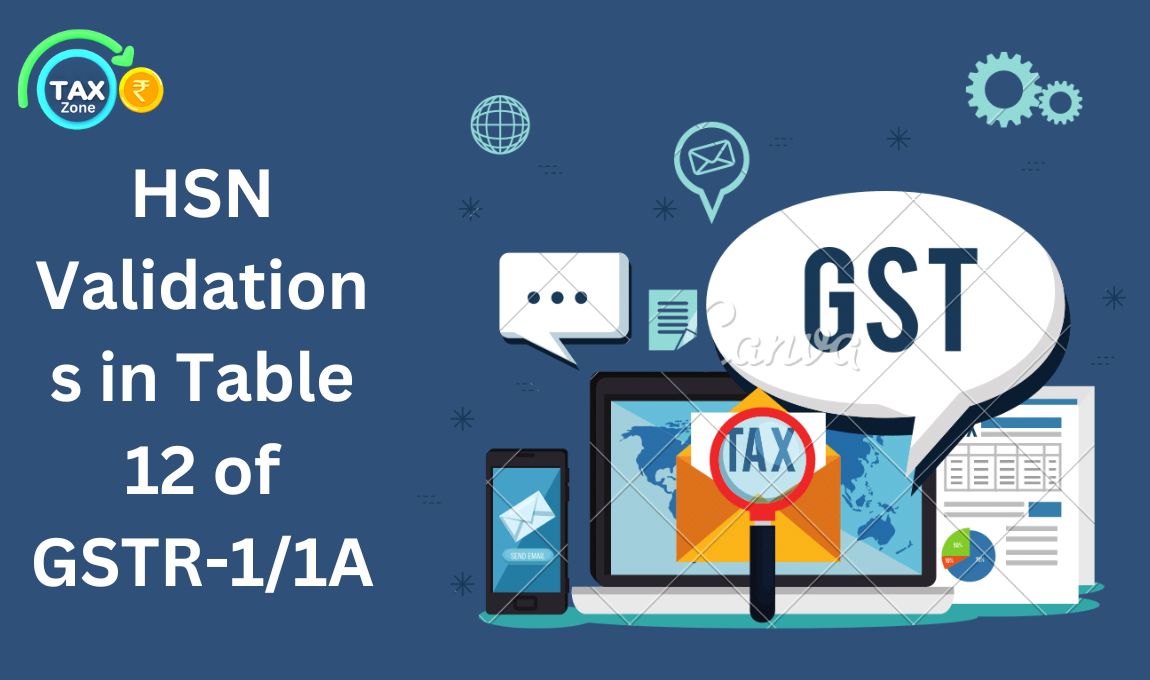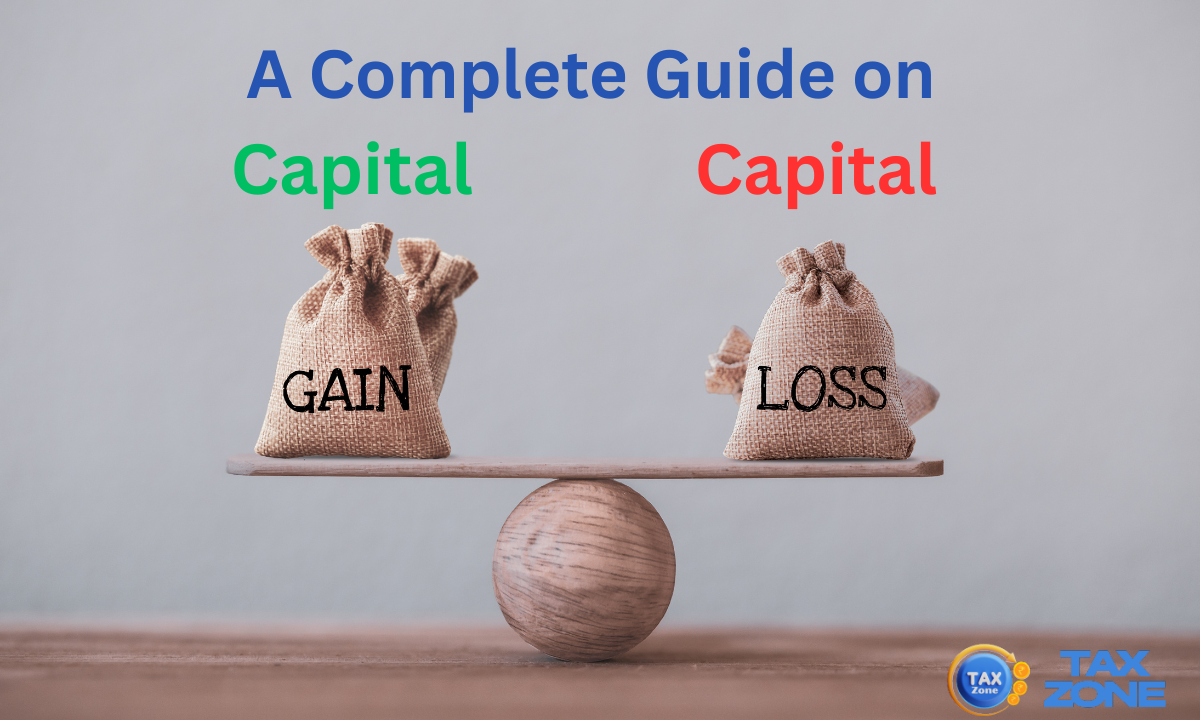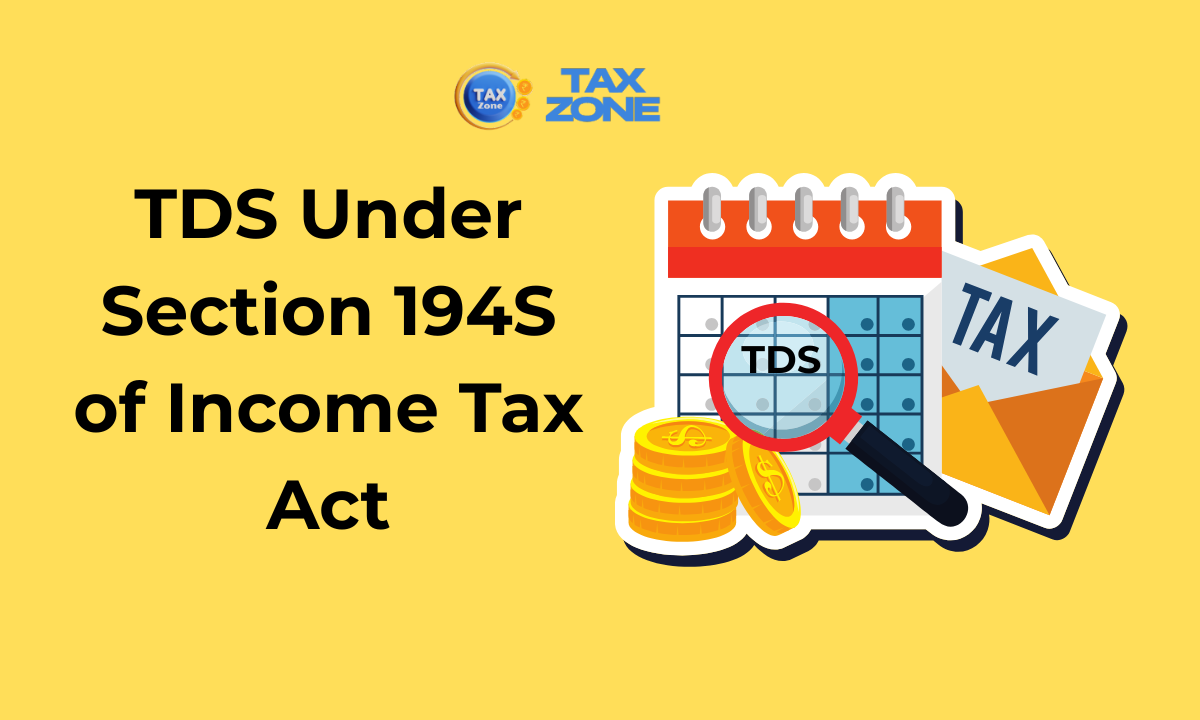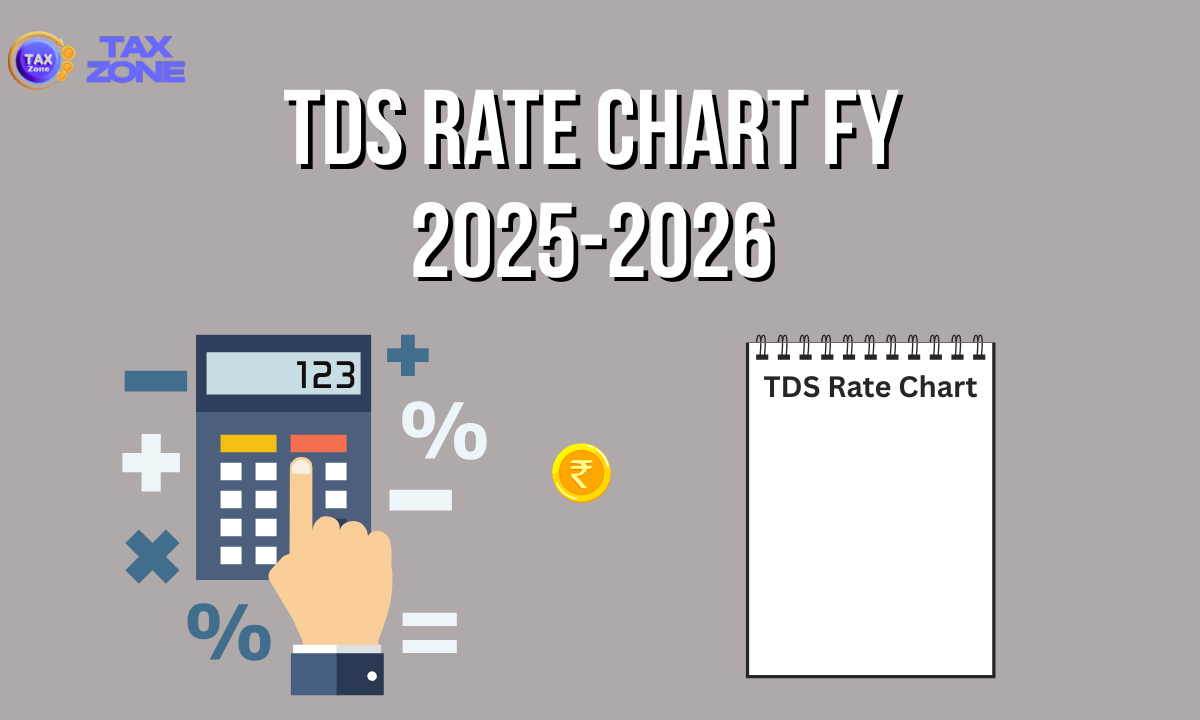Blocked Input Tax Credit: Overview of Section 17(5) of CGST Act 2017
Regarding Blocked Input Tax Credit, Section 17(5) of the CGST Act, is a crucial provision that affects regular taxpayers under GST. This section outlines specific types of expenses or purchases on which Taxpayers are not allowed to claim Input Tax Credit (ITC) . In this article, we provide a detailed, clause-by-clause examination of Section 17(5) of the CGST Act, along with examples to illustrate cases of ineligible ITC.
This provision sets forth 11 specific clauses where ITC cannot be claimed. Section 17(5) of the CGST Act takes Supersede Section 16(1), which generally allows ITC for business-related expenses, and Section 18(1), which permits ITC in special circumstances.
Clause (a) of Section 17(5): Motor Vehicles for Transportation of Persons
This clause restricts ITC on motor vehicles designed for transporting people, especially those with an approved seating capacity of 13 persons or fewer (including the driver). The restriction applies unless the vehicle is used for specific business purposes.
Exceptions to Clause (a)
The ITC on motor vehicles is permitted in the following cases:
- Further Supply of Motor Vehicles: If a registered taxpayer is in the business of buying and selling motor vehicles (e.g., car dealerships), they are eligible to claim ITC.
- Passengers Transportation: IITC is permitted if the vehicle is utilized for passenger transport services, such as by taxi companies or bus operators.
- Driving Training: ITC can be claimed when the vehicle is used for training individuals to drive.
Examples for Clause (a)
- Example 1: A car dealership purchases cars to resell them to customers. Here, ITC on the purchase of cars is allowed as they are used for further supply.
- Example 2: A travel agency buys a minivan to transport tourists. Since the van is used for passenger transportation, ITC on this vehicle is allowed.
- Example 3: A driving school purchases cars for training students. Since the cars are for driving instruction, ITC is permitted.
However, if a business buys a car solely for transporting its management team, ITC on the purchase is not allowed under Clause (a) as it does not meet any of the exceptions.
Clause (aa): Vessels and Aircraft
Clause (aa) of Section 17(5) addresses the ITC restrictions on vessels and aircraft. Generally, ITC on the purchase, lease, or maintenance of vessels and aircraft is not allowed. However, like motor vehicles, there are specific cases where ITC on these items is permissible.
Exceptions to Clause (aa)
The ITC on vessels and aircraft is allowed in the following scenarios:
- Further Supply of Vessels or Aircraft: If a business deals in buying and selling vessels or aircraft, ITC is allowed for such transactions.
- Transportation of Passengers: When vessels or aircraft are used to transport passengers (e.g., airlines or ferry services), ITC is allowed.
- Training on Navigation or Flying: ITC can be claimed if vessels or aircraft are used for training purposes, such as pilot or navigator training programs.
- Transportation of Goods: ITC is permitted when vessels or aircraft are used for the transportation of goods.
Examples for Clause (aa)
- Example 1: An airline company acquires aircraft to transport passengers. ITC on these aircraft is allowed as they are used for passenger transportation.
- Example 2: A logistics company buys a cargo vessel specifically for moving goods across regions. ITC is allowed on this vessel as it is used for the transportation of goods.
- Example 3: A flight school purchases aircraft for training pilots. Since the aircraft are used for training, ITC on these is allowed.
If a private corporation purchases a yacht or a private jet solely for executive travel, ITC on the purchase would not be allowed as it doesn’t meet the exceptions under Clause (aa).
Clause (ab): Insurance, Repairs, and Maintenance Services
Clause (ab) extends the restrictions on Input Tax Credit for insurance, repair, and maintenance services related to the motor vehicles, vessels, or aircraft covered under Clauses (a) and (aa). ITC is typically blocked on these services unless the vehicle, vessel, or aircraft falls under one of the specific exceptions in Clauses (a) or (aa).
Exceptions to Clause (ab)
The ITC on insurance, repair, and maintenance services is allowed if:
- The Motor Vehicle, Vessel, or Aircraft Meets the Exceptions in Clause (a) or (aa): For example, if the vehicle is used for passenger transportation or further supply, ITC on repair and maintenance services is permitted.
- For Manufacturing or Insurance Businesses: If the taxpayer is engaged in the manufacture of such vehicles, vessels, or aircraft, or if they provide insurance for them, ITC on insurance, repair, and maintenance services is allowed.
Examples for Clause (ab)
- Example 1: A logistics company operates a fleet of trucks to transport goods. Since these trucks are used for a taxable supply (transporting goods), ITC on maintenance services for these trucks is allowed.
- Example 2: An airline regularly services its aircraft used for commercial passenger transport. ITC on repair and insurance services is allowed for these aircraft as they are used in the transportation of passengers.
- Example 3: A car manufacturing company insures its vehicles during the production stage. Since the company manufactures motor vehicles, ITC on the insurance services is allowed.
However, if a company insures its personal-use vehicle or arranges repairs for an executive car not used for any taxable supply, ITC on these services would not be allowed under Clause (ab).You Can Say it as Blocked Input Tax Credit.
Clause (b) of Section 17(5) – Categories and Restrictions
Clause (b) of Section 17(5) disallows ITC on expenses relating to:
- Food and Beverages, Outdoor Catering
- Beauty Treatment, Health Services, and Cosmetic Surgery
- Membership of Clubs, Health, and Fitness Centers
- Renting or Hiring of Motor Vehicles, Vessels, or Aircraft for Personal Purposes
- Travel Benefits Provided to Employees on Vacation
Each item in this list, along with the restrictions on ITC, is discussed in detail below.
1. Food and Beverages, Outdoor Catering
Explanation: Food and beverages, along with outdoor catering services, generally fall under personal consumption rather than business-related use, making them ineligible for ITC under normal circumstances.
Example: Suppose a company hosts a business meeting and provides lunch to participants. The cost of food and beverages for this lunch event is not eligible for ITC because it is categorized as a personal consumption expense. However, if a business is in the hospitality sector, such as a restaurant or catering service, and uses these goods and services as part of its business supply, ITC may be permitted as an exception.
2. Beauty Treatment, Health Services, and Cosmetic Surgery
Explanation: Expenses on beauty treatments, health services, and cosmetic surgeries are often linked to personal consumption. Consequently, ITC on these services is blocked unless the company provides these as part of its own taxable supply.
Example: Consider a corporate event where a business offers wellness and spa services to employees for recreation. Since these services are viewed as personal, ITC cannot be claimed. However, if a company is in the beauty industry, such as a spa or salon, and provides these services as part of its business, ITC is permitted.
3. Membership of Clubs, Health, and Fitness Centers
Explanation: Memberships in clubs, health centers, or fitness facilities are regarded as non-business-related expenses. As a result, ITC on these memberships is restricted, as they are generally considered to serve personal interests rather than directly contribute to business operations.
Example: If a company sponsors gym memberships for its employees, ITC cannot be claimed on this expense since it’s for personal benefit. However, if a health club provides memberships as part of its service offerings, it may claim ITC for the inputs related to such memberships.
4. Renting or Hiring of Motor Vehicles, Vessels, or Aircraft for Personal Purposes
Explanation: This restriction applies to motor vehicles, vessels, or aircraft hired for personal use rather than business operations. However, if these means of transportation are essential to the business, like passenger transport services or goods logistics, ITC can be claimed.
Example: If a company rents a car to provide an employee with a personal commute option, ITC on this expense is not permitted. On the other hand, if a business leases a fleet of cars for transporting clients, ITC may be allowed because the vehicles are used directly in providing a business service.
5. Travel Benefits Provided to Employees on Vacation
Explanation: ITC is also blocked on travel benefits that a company provides to employees for personal vacation travel, such as leave or home travel concession, as these are considered personal consumption rather than essential for business operations.
Example: If a company offers holiday travel packages to its employees as part of a reward program, the ITC on this travel expense is ineligible. However, if the travel is directly related to business needs, such as for attending conferences or client meetings, the ITC may be claimable.
Exceptions to Clause (b) of Section 17(5)-Blocked Input Tax Credit
In certain cases, Clause (b) allows exceptions for ITC eligibility, especially when:
- The restricted items are integral to providing outward taxable supplies (for example, a catering service using food and beverages as part of its business).
- The goods or services fall under mandatory requirements that the employer must fulfill under current laws.
Clause (c) of Section 17(5) – Works Contract Services for Immovable Property
Clause (c) disallows ITC on works contract services when used in the construction of an immovable property (other than plant and machinery). A works contract involves a combination of goods and services provided under a single contract for constructing, renovating, or altering an immovable property.
Key Points of Clause (c):
- Works Contract Definition: A works contract refers to a contract where the supplier agrees to provide construction services, and this typically includes materials and labor for creating an immovable asset.
- Construction of Immovable Property: ITC on goods and services used in constructing immovable property is generally disallowed to prevent businesses from capitalizing on input costs of their real estate projects.
- Exceptions: There are certain exceptions to this rule:
- ITC can be claimed if the works contract services are used to provide outward taxable services of the same category. For example, if a company is in the business of providing works contract services, it can claim ITC on similar services that it has procured to fulfill a client project.
- Construction services used directly for “plant and machinery” (rather than building or office spaces) may qualify for ITC, as they are integral to business production rather than serving as real estate investments.
Example of Clause (c):
Suppose a company hires a contractor to construct its corporate office building. The contractor provides both materials and labor under a single works contract. Since the office building is classified as immovable property, ITC on this expense is blocked under Clause (c). However, if the company were to use a works contract to construct a manufacturing plant where production occurs, it could claim ITC because the plant qualifies as “plant and machinery.”
Clause (d) of Section 17(5) – Goods and Services for Construction
Clause (d) blocks ITC on goods and services used in the construction of immovable property by a taxable person for any purpose other than resale. This clause covers situations where a company purchases materials and hires services for constructing an immovable property for personal or business use, except when the property is intended for onward sale.
Key Points of Clause (d):
- Construction for Personal Use or Business Operations: ITC is disallowed when a company constructs an immovable property for its own business needs or personal use, including offices, showrooms, or warehouses. This rule applies regardless of whether the property is later rented out.
- Capitalization Requirement: If the cost of construction is capitalized in the company’s books, ITC on those goods and services is not available. This is because such investments are treated as capital assets rather than current expenses for business operations.
- Exemption for Resale: The restriction does not apply if the property is constructed with the intent of resale. For example, real estate developers who build properties for sale can claim ITC, as the construction is directly linked to their taxable outward supplies.
- Plant and Machinery Exclusion: Like Clause (c), Clause (d) also allows an exception for “plant and machinery.” This means that if the goods and services are used to construct plant and machinery essential for production, ITC may be claimed on these costs.
Example of Clause (d):
Let’s say a retail company decides to build a new store. It purchases construction materials and contracts labor for the project, intending to use this property for its retail operations. Since the store is an immovable property meant for the company’s use, ITC on these goods and services is restricted. However, if a real estate developer constructs a shopping complex to sell units to various retail tenants, ITC can be claimed because the construction costs are part of the developer’s outward taxable supplies.
Understanding “Plant and Machinery” Exception
Both Clause (c) and Clause (d) allow ITC for goods and services used in constructing “plant and machinery.” According to the CGST Act, plant and machinery include apparatus, equipment, and machinery fixed to the earth by foundation or structural support used in the production or processing of goods or services. However, buildings, civil structures, pipelines laid outside the factory, and telecommunication towers do not qualify under this exception.
For example, if a manufacturing business installs heavy machinery on the factory floor and needs civil work for the installation, the ITC on the associated costs is allowed as these constructions relate to plant and machinery essential to the business.
Clause (e) of Section 17(5) – Composition Scheme
Clause (e) restricts ITC for composition taxpayers. The Composition Scheme under GST offers a simplified tax mechanism for small businesses, allowing them to pay a fixed percentage of their turnover as tax without the need for regular GST compliance. However, since this scheme is designed to simplify tax for small businesses, it includes restrictions on ITC.
Key Points of Clause (e):
- Restriction on ITC: Composition taxpayers are not allowed to claim ITC on the inputs, goods, or services they procure for their business. This means they cannot recover any GST paid on their purchases, as the Composition Scheme taxes are calculated based on turnover rather than input-output tax.
- Simple Tax Mechanism: The Composition Scheme is intended to reduce compliance costs and administrative burdens for small businesses by allowing them to pay tax at a fixed rate without complex filing. This makes the scheme attractive for businesses with minimal tax liabilities.
- Limited Scope of the Scheme: Since the Composition Scheme restricts ITC, businesses that primarily deal with other registered taxpayers might find it limiting. These businesses may prefer to opt for the regular scheme instead of Composition, as they can pass on ITC benefits to their customers.
- Eligibility Criteria: Only businesses with a turnover below a specified threshold (currently ₹1.5 crores for most states) are eligible to opt for the Composition Scheme. Additionally, certain businesses, such as manufacturers of notified goods, cannot opt for this scheme.
Example of Clause (e):
Suppose a restaurant with an annual turnover below the threshold opts for the Composition Scheme to simplify its tax obligations. As a composition taxpayer, it pays GST at a fixed rate (5%) on its total turnover but cannot claim ITC on any purchases like ingredients, furniture, or kitchen equipment. This ITC restriction under Clause (e) ensures that composition taxpayers do not claim tax credits that might complicate the simplified compliance process.
Clause (f) of Section 17(5) – Non-Resident Taxable Persons (NRTPs)
Clause (f) restricts ITC for non-resident taxable persons (NRTPs) except on goods imported into India. An NRTP is a person who occasionally supplies goods or services in India without a fixed place of business or permanent residence in the country, such as foreign entities participating in short-term business activities in India.
Key Points of Clause (f):
- ITC Restriction on Supplies: Non-resident taxpayers are not eligible to claim ITC on goods or services they acquire for conducting business in India, except for goods imported into the country. This restriction limits the tax credits available to NRTPs on their domestic procurements, focusing ITC eligibility only on import activities.
- Focus on Temporary Taxpayers: The restriction on ITC for NRTPs is based on the temporary nature of their business presence in India. NRTPs are typically involved in short-term projects or business events, and allowing ITC for their domestic procurements could lead to compliance complexities and potential tax revenue risks.
- Exception for Imported Goods: The restriction under Clause (f) does not apply to goods imported by NRTPs. This means that NRTPs can still claim ITC on GST paid at the time of import, allowing them to recover tax costs on their imported goods used for business in India.
- ITC Refundability for Regular Exporters: Unlike regular taxpayers, NRTPs are generally not eligible for ITC refunds. This clause ensures that the benefits of ITC remain within the tax ecosystem for businesses that maintain a permanent presence in India.
Example of Clause (f):
Imagine a foreign company that sets up a temporary stall at a trade fair in India to promote its products. Since it operates as an NRTP, it pays GST on the goods and services procured within India to set up the stall. However, the company cannot claim ITC on these domestic purchases. If it imports certain products to showcase, it can claim ITC on the GST paid at the time of import, as imports are an exception under Clause (f).
Purpose and Rationale Behind Clauses (e) and (f)
Both clauses (e) and (f) in Section 17(5) serve to streamline the GST system by ensuring that ITC claims remain manageable and practical. Here’s how these clauses support the GST framework:
- Simplification for Small Businesses: By blocking ITC for composition taxpayers, Clause (e) maintains the simplicity of the Composition Scheme, keeping it manageable and affordable for small businesses.
- Control on Short-Term Non-Residents: Clause (f) limits ITC benefits for non-resident taxpayers who are in India temporarily. This helps prevent ITC claims from those with a transient business presence, reducing the administrative burden and risks associated with temporary registrations.
- Focus on Permanent Business Ecosystem: The restriction on ITC for both composition taxpayers and NRTPs keeps the ITC system focused on businesses with a long-term presence in India, thereby maintaining a more robust and stable tax credit ecosystem.
Clause (g) of Section 17(5) – Goods or Services for Personal Use
Under GST, ITC is intended to reduce the cascading effect of taxes on business expenses, helping businesses lower their tax liabilities on operational costs. However, when a company or individual incurs expenses for personal or non-business purposes, the ITC on such purchases is disallowed under Clause (g). This distinction ensures that tax credits benefit only the productive, business-related expenses.
Key Points of Clause (g):
- Restriction on Personal Use: Goods and services purchased solely for personal use are not eligible for ITC. This means that any GST paid on these purchases cannot be claimed as credit against the taxpayer’s GST liabilities.
- Segregation of Personal and Business Expenses: This clause emphasizes the need for businesses to maintain a clear separation between business expenses and personal consumption, both in their records and in claiming credits.
- Disallowed for All Taxpayers: This restriction applies universally to all GST-registered taxpayers, regardless of their size or type of business. Whether a small business, large corporation, or individual, no one can claim ITC on goods or services meant for personal consumption.
- Promotes Proper Record-Keeping: By disallowing ITC on personal expenses, this provision encourages taxpayers to keep meticulous records, distinguishing between business and personal expenses. This also helps prevent potential misuse of ITC claims.
Example of Clause (g)
Consider a few scenarios to understand how Clause (g) applies:
- Company-Owned Vehicle for Personal Use: Suppose a company purchases a car and uses it primarily for the business owner’s personal purposes. In this case, the company cannot claim ITC on the GST paid for purchasing or maintaining this vehicle, as it’s being used for personal reasons.
- Entertainment Expenses for Personal Events: Let’s say a business owner arranges a family gathering and pays for catering services, covering GST in the cost. Since this catering is for personal entertainment and not a business purpose, the GST paid on these catering services is ineligible for ITC under Clause (g).
- Furniture for Personal Use: Imagine an individual who runs a business from an office but buys new furniture for their home and pays GST on it. Since this purchase is for personal use, the GST on this furniture cannot be claimed as ITC.
In each of these examples, even though the purchases may involve GST, the ineligible ITC falls under Clause (g) because the items are not for business use. The ITC is allowed only if the purchased goods and services are clearly meant for operational or business use, not for personal consumption.
Purpose and Rationale Behind Clause (g)
The core purpose of Clause (g) is to uphold the principle that ITC is a business benefit, not a personal subsidy. Here’s why Clause (g) is significant in the GST framework:
- Focuses ITC on Economic Activity: By restricting ITC to business purposes, the GST framework ensures that tax benefits are available only for those expenses that support economic activity and productivity, promoting fair tax practices.
- Prevents Misuse of ITC Claims: Allowing ITC on personal expenses would lead to misuse, as businesses could potentially inflate claims. Clause (g) helps prevent such misuse, ensuring that GST benefits are limited to eligible, business-related transactions.
- Supports Transparent Record-Keeping: This clause encourages businesses to maintain transparent financial records, with a clear separation between business and personal transactions, simplifying compliance and reducing the risk of legal issues.
Clause (h) of Section 17(5): Free Samples & Lost Goods
In business, it’s common for goods to be lost, damaged, or given away as samples or gifts. While such practices are often part of operations, they do not contribute to generating taxable sales and are not considered productive uses of inventory. Clause (h) disallows ITC for goods under these circumstances to ensure that tax benefits are aligned with business-related use only.
Key Elements of Clause (h):
- Goods Lost, Stolen, or Destroyed: ITC is not allowed (Blocked Input Tax Credit) on any goods that are lost, stolen, or destroyed. If inventory is damaged beyond use or stolen, it is considered as being removed from productive business use, and the tax paid on such goods is not recoverable.
- Goods Written Off: When inventory or assets are written off in the company’s books, it indicates that the goods are no longer useful to the business. As such, the GST paid on these items cannot be claimed as ITC, as they are no longer considered a productive expense.
- Goods Disposed of as Free Samples or Gifts: Businesses often distribute samples or gifts to promote their products. However, these goods are not sold or taxed when given away for free. Under GST, such disposal of goods without consideration (payment) means the associated ITC is ineligible, as the goods are not contributing to taxable sales.
Clause (i) of Section 17(5) of the CGST Act – Fraudulent ITC Claims
Clause (i) of Section 17(5) of the Central Goods and Services Tax (CGST) Act specifically addresses situations where Input Tax Credit (ITC) claims are made fraudulently. This provision is designed to prevent businesses from claiming ITC on transactions that are not genuine, thereby safeguarding the integrity of the tax system. Fraudulent ITC claims are a serious concern for the GST framework, as they not only lead to revenue loss but also undermine the system’s credibility.
Understanding Clause (i) – Prohibition on Fraudulent ITC Claims
Clause (i) restricts businesses from claiming ITC on any goods or services that are involved in fraudulent transactions or for which a fraudulent claim of ITC has been made. The intent of this provision is clear: to curb fraudulent practices where businesses attempt to illegally claim tax credits on transactions that are fabricated, non-existent, or otherwise ineligible under the GST Act.
The key element of this clause is its focus on fraud, which can take many forms, including fake invoices, non-existent transactions, or the use of ghost suppliers. These fraudulent practices often lead to businesses claiming more ITC than they are entitled to, thereby reducing the amount of GST payable to the government.
Types of Fraudulent ITC Claims
- Fake Invoices: One of the most common forms of fraudulent ITC claims is the use of fake invoices. In this case, a business may claim ITC based on invoices for goods or services that were never actually provided, but the business receives these invoices from unscrupulous suppliers who also issue fake invoices to others.
- Non-existent Suppliers: Some businesses may claim ITC on goods and services purportedly bought from suppliers who do not exist. These suppliers might not have any actual operations or goods, but their details are used to create fake invoices, allowing the claiming business to claim ineligible ITC.
- Phantom Transactions: In some cases, a business may engage in phantom transactions, where goods or services are claimed to have been purchased, but no actual transaction took place. This allows the business to improperly claim ITC on non-existent transactions.
- Circular Trading: Circular trading involves the same goods being sold and bought multiple times between related parties without any genuine sale or purchase. This manipulative tactic allows businesses to claim ITC multiple times on the same goods.
- GST Evading Practices: Some businesses may structure their operations to evade GST entirely, such as by creating fake transactions between different entities within the same group, and then claiming ITC on those non-legitimate purchases.
Example Scenarios for Clause (i)
- Fake Invoices: A business claims ITC on an invoice for goods that it never received. The invoice was issued by a supplier who has no actual business operations and is only involved in issuing fake invoices to multiple businesses. The GST authorities catch this discrepancy, and the business is forced to reverse the ITC and pay a penalty.
- Non-existent Supplier: A business claims ITC on purchases made from a supplier that is not registered under GST, or whose registration has been suspended. Since the supplier cannot issue valid tax invoices, the ITC claimed by the business is deemed ineligible.
- Circular Trading: A business participates in circular trading, buying and selling the same goods between related companies multiple times. This creates fake transactions that allow the business to claim ITC on the same goods multiple times. The authorities detect this and disallow the ITC claims, resulting in penalties and interest on the amount involved.
Conclusion
In summary, Section 17(5) Blocked Input Tax Credit ,serves as a safeguard against misuse of the GST system, and its careful implementation is crucial for maintaining a transparent and efficient tax regime. Businesses that understand and comply with its provisions will not only avoid legal and financial repercussions but will also contribute to the overall health of the GST framework in India.
